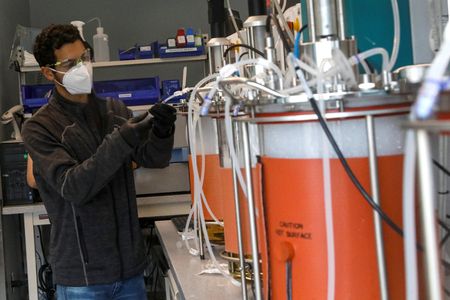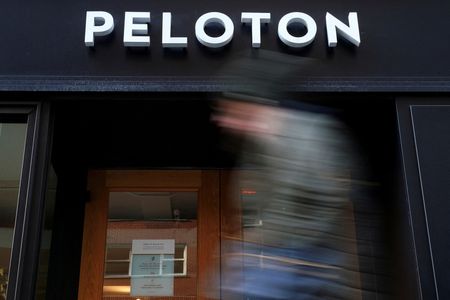By Michael Erman and Leroy Leo
(Reuters) -Merck & Co beat Wall Street estimates for quarterly earnings on Thursday on strong sales of its blockbuster cancer treatment Keytruda, but said weak demand for its Gardasil vaccine in China is likely to carry over into 2025.
Gardasil, which prevents cancers caused by the human papillomavirus, has been one of Merck’s top growth drivers aside from Keytruda and much of its international growth has come from China.
Merck’s shares were off 4% in morning trading after reporting that the vaccine’s sales fell 11% to $2.31 billion in the quarter, missing the average analyst estimate of $2.46 billion, according to LSEG data.
“It is both a demand issue driven by the economy, some impact on promotional activity we think related to concerns about anti-corruption, as well as continuing adjustment of inventory levels in the marketplace,” Chief Executive Rob Davis said of Gardasil’s China sales in an interview.
“Ultimately, what we have to do is drive demand.”
The company expects Gardasil shipments to China in the fourth quarter to be similar to the third. It had similar issues with Gardasil in China in the second quarter.
Beijing has been running a campaign targeting bribery of doctors that disrupts business and scuttles hospital deals with international pharmaceutical companies.
Merck’s overall sales in China fell 40% to $996 million in the third quarter from $1.67 billion a year ago.
Davis said Merck believes it still has a significant long-term opportunity for Gardasil in China with a meaningful population of women who could receive the vaccine.
“This isn’t going to be solved next quarter. It’s going to take us through probably 2025,” the CEO said of Gardasil’s issues in China on a call to discuss the results.
Merck has an opportunity to generate $2 billion to $3 billion from Gardasil sales in China, with a potential expansion to men being a key growth driver, Davis said.
Gardasil is not the only vaccine that has been hurt by weakness in China. GSK said on Wednesday that sales of its shingles vaccine Shingrix fell in the largest Asian economy.
Sales of Keytruda, the world’s top-selling prescription medicine, rose 17% to $7.43 billion in the quarter, beating Wall Street expectations of $7.20 billion.
Merck’s overall sales of $16.66 billion topped analyst forecasts of $16.45 billion.
Merck posted third-quarter earnings of $1.57 a share, down from $2.13 a share a year ago due to costs from acquisitions. Analysts on average expected earnings of around $1.50 a share.
(Reporting by Michael Erman and Leroy Leo; Editing by Bill Berkrot and Shounak Dasgupta)











